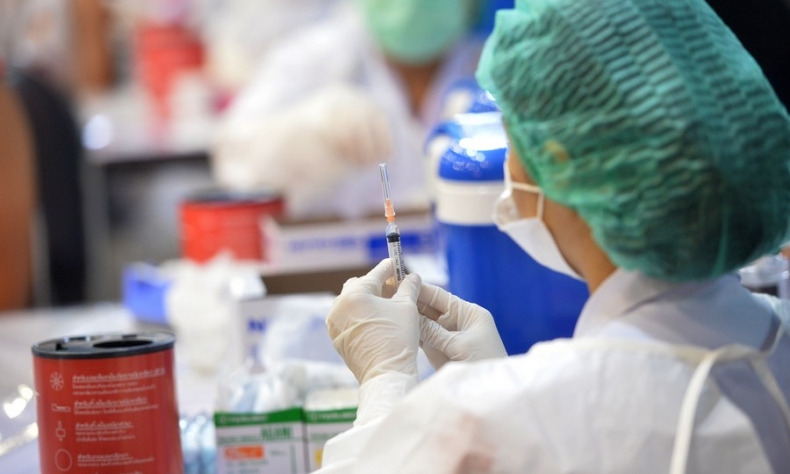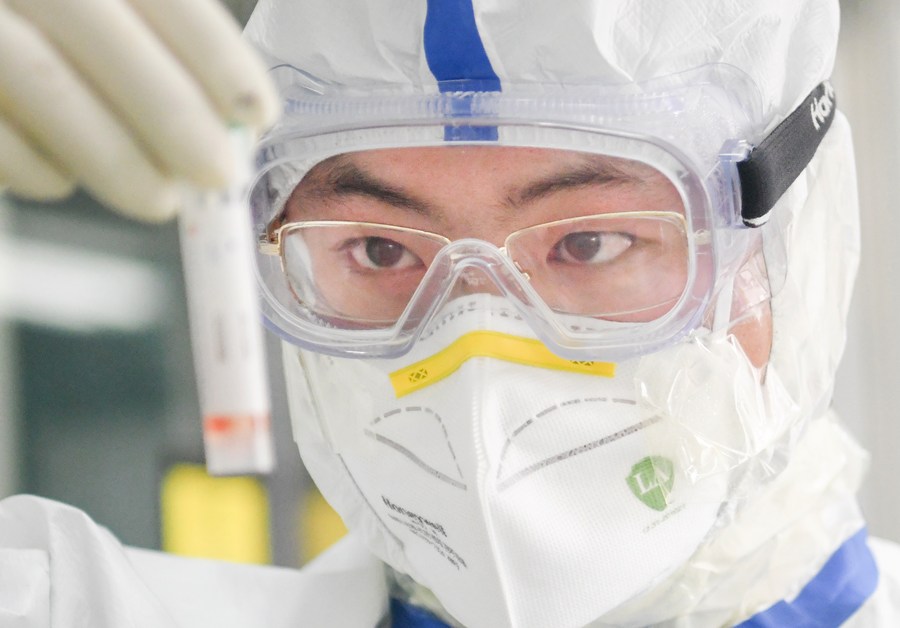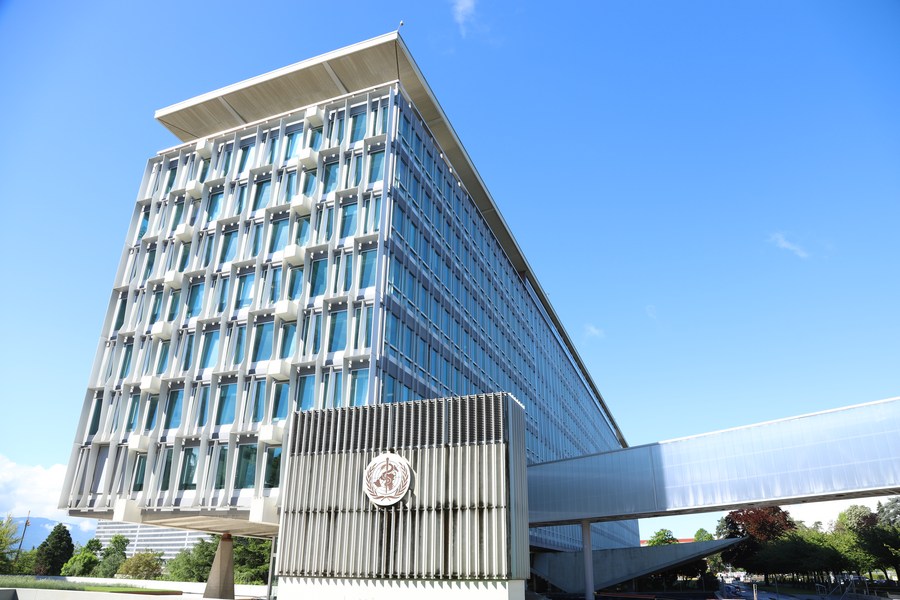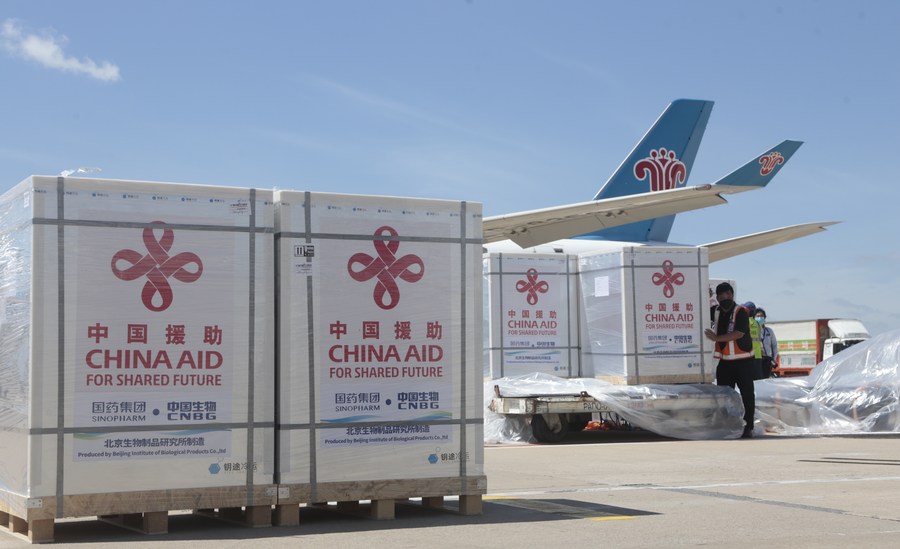The World Is Absorbed by a War on Misinformation amid the Pandemic

Real leadership demonstrates itself in respecting science and truth, not political manipulation.
Scientists are warning that the world has entered a dangerous new phase of the pandemic, with the World Health Organization (WHO) reporting in early August new infections globally surging up 80 percent over the previous four weeks, driven by the more transmissible and deadly Delta variant, which has been found in over 130 countries since first detected in India.
The fight against COVID-19 is an important example of the way science can define and shape responses to global challenges. In the process of finding an effective cure and reliable protection, countries have to rely on scientific knowledge to understand how it can be defeated.
Science in service
We are witnessing an era of exponential growth at every level. In the meantime, we are also living in a post-fact world—a time when misinformation, falsehoods and outright lies spread like viruses, with policy decisions driven by ideology and politics in parts of the globe, resulting in a mistrust in science and scientists.
However, it is science, research and evidence, not wishful thinking or ideology, that give us hope as we face the uncertainties of the pandemic.
We are not powerless in this global health crisis. The world is committed to evidence-based action to fight the challenges of COVID-19. Now is the time for scientific knowledge to form the foundation to win the battle and build the base for societies to respond to similar global challenges in the future.
Real leadership demonstrates itself in respecting science and truth, not political manipulation. From openly calling the virus the “Wuhan virus” to withdrawing from WHO last year, the U.S. has, since the very beginning, tried to politicize the pandemic, and stigmatize the virus.
To substantiate its predetermined conclusion of a “China lab leak,” the U.S. has ignored the hard work of scientists, set aside scientific research and used intelligence agencies to presume guilt. Through misleading means and pressure, it intends to force scientists to bow and turn to support the unfounded accusation.

Pamela Bjorkman, professor of biology at the California Institute of Technology, explained that she co-signed an open letter to Science magazine calling for an investigation into the lab leak theory because she thought the letter would promote “more funding for searching for natural viruses in animal reservoirs” and did not anticipate it would be “used to promote the lab origin hypothesis.” In retrospect, she felt she had acted “perhaps naively.” Michael Worobey, an evolutionary biologist at University of Arizona who also added his name to the letter, explained why he continues to think that “a zoonotic origin of SARS-CoV-2 [the virus that causes COVID-19] is more likely than a lab leak scenario” even though signing the letter leaves the opposite impression. Jeffrey Sachs, a professor at Columbia University, wrote that origin tracing should not be used to blame China and exculpate the U.S. Armenian scholar Benyamin Poghosyan said that the U.S., driven by narrow-minded geopolitical purposes, has used origin tracing to engage in anti-China propaganda, which undermines the international solidarity against the epidemic, and runs counter to the vision of justice and human rights that the U.S. claims to champion.
Seventy countries have written to WHO Director General Tedros Adhanom Ghebreyesus to stress that tracing the origins of the virus is a scientific matter and should not be politicized, and the joint WHO-China study report should be upheld. In many countries, condemnation on the U.S. has been expressed by political leaders, media outlets, experts and the general public. In China alone, over 16 million netizens have endorsed the open letter calling on WHO to investigate the U.S. Fort Detrick bio-lab.
About 80 percent of the global netizens who participated in an online survey by the China Global Television Network Think Tank, in the UN official languages of Chinese, English, Russian, French, Spanish and Arabic, believe “the issue of virus tracing on COVID-19 has been politicized.”
The report released on July 26 shows strong global disapproval with the U.S. Participants have voiced their shared opinion in different languages that “the investigation of the origin of the virus does not help to solve the problem of pandemic control. This is nothing but a stupid and unhelpful political move to cover up the U.S.’ attempt to contain China’s rise.”
COVID-19 needs origin tracing, and so does the political virus. The objective and impartial voices of the world’s people are worthy of hearing.
An inclusive world environment is needed in which physicians, scientists and experts are free to communicate factual information without fear of retaliation or retribution. We all have a responsibility to seek out and share information from credible sources, exercise good judgment, and affirm science, evidence and fact in both words and actions.
China holds that origin tracing means respecting science rather than pursuing political objectives.
China has been participating in international origin tracing cooperation with an open attitude. It has twice invited WHO experts to carry out joint research. The experts were given free access and met all the people they wanted to talk with. They drew a scientific conclusion that a laboratory leak is “extremely unlikely.” Their important recommendations also included “searching for possible early cases on a global scale” and “studying the possibility of cold chain transmission of the virus.”

The U.S. Government, on this point, is encouraged to release at the earliest the medical records of those infected in the unexplained respiratory disease outbreaks in Virginia and the large-scale e-cigarette, or vaping, associated lung injury in Wisconsin and Maryland in 2019, and of U.S. military personnel who fell ill during the Military World Games in Wuhan, China, in October 2019, and to allow a thorough international probe into Fort Detrick lab and the 200-plus U.S. biological labs overseas.
In July, the WHO Secretariat notified its member states about a work plan on a second-phase origin study, which has surprised scientists. It is not only inconsistent with the requirements of the 73rd World Health Assembly (WHA) resolution, but also ignores the conclusions and recommendations of the first-phase joint research report. It seems that when the U.S. returns to WHO, it does not focus on joining the international fight against the pandemic, but on continuing to spread political viruses through the platform.
But at this critical time, shouldn’t the world respond with reason and keep science at the fore of decision-making and action?
True to word
In May last year, Chinese President Xi Jinping made a solemn commitment at the 73rd WHA that China would make its vaccines a global public good when they are available, and make its contribution to vaccine accessibility and affordability in developing countries.
China has been honoring its commitment. It is the first to share the full-length genetic sequence of the novel coronavirus with the world, helping countries accelerate vaccine research and development.
At present, four Chinese vaccines have been approved for use in more than 100 countries, and two vaccines have been added to the WHO Emergency Use Listing and the procurement list of the COVID-19 Vaccines Global Access (COVAX). Their safety and efficacy have been recognized by international authorities.

China is the first to provide vaccines to developing countries in need. It has been and is donating vaccines to more than 100 countries, and has exported vaccines to more than 60 countries, exceeding 770 million doses, ranking first in the world.
China is the first to cooperate with other developing countries in vaccine production. With its help, the United Arab Emirates, Egypt, Indonesia and Brazil have become the first countries in their regions to have local capacity.
China has also been active in providing vaccines to COVAX, UN peacekeepers and the International Olympic Committee. It has launched the Initiative for Belt and Road Partnership on COVID-19 Vaccines Cooperation, and welcomes the participation of more countries.
Looking ahead, China will provide 2 billion COVID-19 vaccine doses to the world this year and offer $100 million to COVAX.
It will continue to deepen technology transfer and production capacity cooperation with other developing countries, support the World Trade Organization in making an early decision on waiving intellectual property rights on COVID-19 vaccines, and support COVAX by delivering the first batch of more than 100 million doses of vaccines to the program before the end of October.
At present, there is still insufficient vaccine production capacity, and inequitable distribution. To address these challenges, the world should do away with “vaccine nationalism.” The first step is to address the “capacity deficit” by expanding supply and helping developing countries through technology transfer and cooperative production, as well as ensuring the global supply chains of raw materials.
The second step is to address the “distribution deficit” by strengthening and quickening vaccine sharing, and achieving universal access and affordability of vaccines in developing countries, especially those least developed.
The third step is to address the “cooperation deficit” by bringing the role of governments, enterprises and international organizations into full play in the spirit of solidarity at times of difficulty.
Respecting science and scientists, China strives to realize vaccine fairness and accessibility, promoting global access to vaccines, practicing multilateralism and enhancing the effectiveness of international cooperation.
The author is an op-ed contributor to Beijing Review and an expert on international studies.
 Facebook
Facebook
 Twitter
Twitter
 Linkedin
Linkedin
 Google +
Google +










